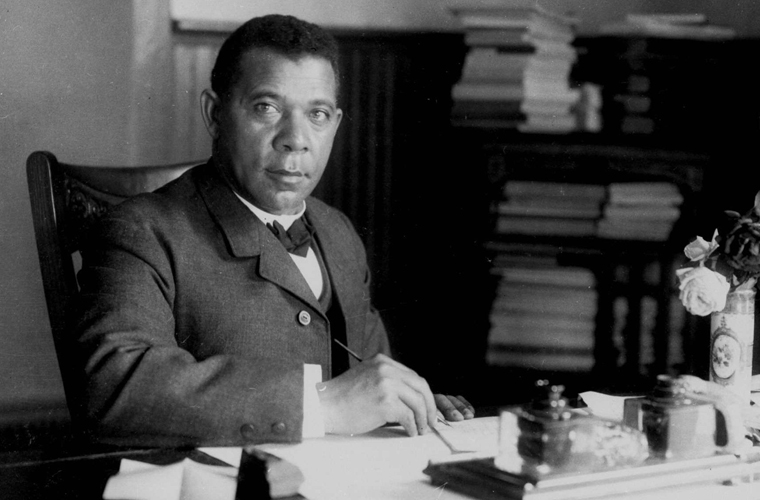Booker T. Washington was a prominent African American educator, author, and leader in the late 19th and early 20th centuries. He was born into slavery in 1856 in Virginia, but after emancipation, he worked his way through Hampton Normal and Agricultural Institute (now Hampton University) and attended college at Wayland Seminary.
Washington is best known for his role as the dominant leader of the African American community from the 1890s until he died in 1915. He was a key proponent of African American economic self-help and was a leading advocate for the idea that African Americans should focus on vocational education and economic advancement rather than directly challenging Jim Crow segregation and the disenfranchisement of black voters. This approach was later termed the “Atlanta Compromise” because of a speech he gave in Atlanta in 1895, where he outlined his philosophy of race relations.
Washington believed that by demonstrating the economic progress and moral character of African Americans, they would eventually win the respect and equal treatment they deserved from white Americans. He worked tirelessly to build support from both black and white philanthropists to fund schools and colleges for African Americans, including the Tuskegee Institute in Alabama, which he founded in 1881.
Under his leadership, the Tuskegee Institute became one of the leading educational institutions for African Americans in the country, focusing on practical skills and vocational training. Washington also became a widely respected author and speaker, publishing several books and delivering countless speeches on the importance of education and self-reliance for African Americans.
Despite his emphasis on economic advancement, Washington was not blind to the injustices faced by African Americans, and he quietly supported legal challenges to segregation and disenfranchisement. He also mentored and supported other African American leaders, including W.E.B. Du Bois, who would become one of his most vocal critics.
Washington’s leadership and philosophy were not without controversy. Many African Americans, particularly those in the North, criticized his accommodationist approach and accused him of being too willing to compromise on civil rights. However, Washington’s influence and fundraising abilities made him a powerful figure in the national conversation on race relations.
Booker T. Washington’s legacy is complex. While he undoubtedly made significant contributions to the education and economic advancement of African Americans, his accommodationist approach has been heavily debated. Nevertheless, his impact on the African American community and the broader civil rights movement cannot be denied. His commitment to education and self-help continues to inspire generations of African Americans striving for equality and opportunity.


